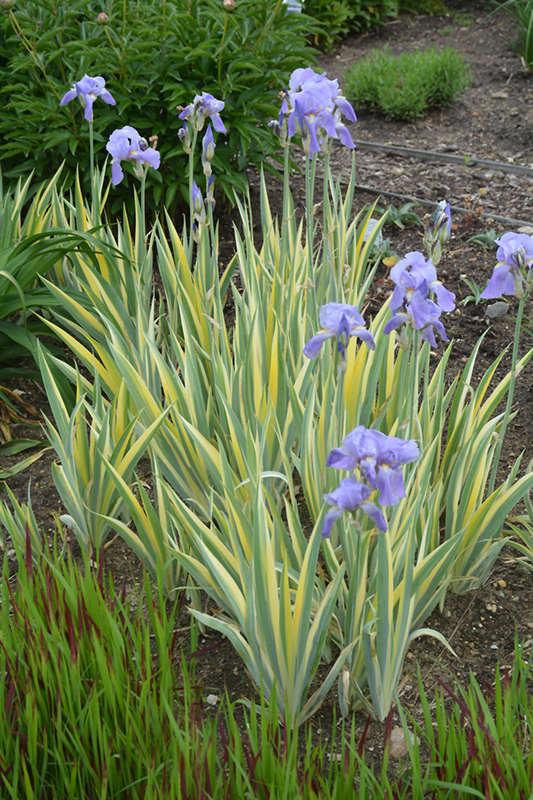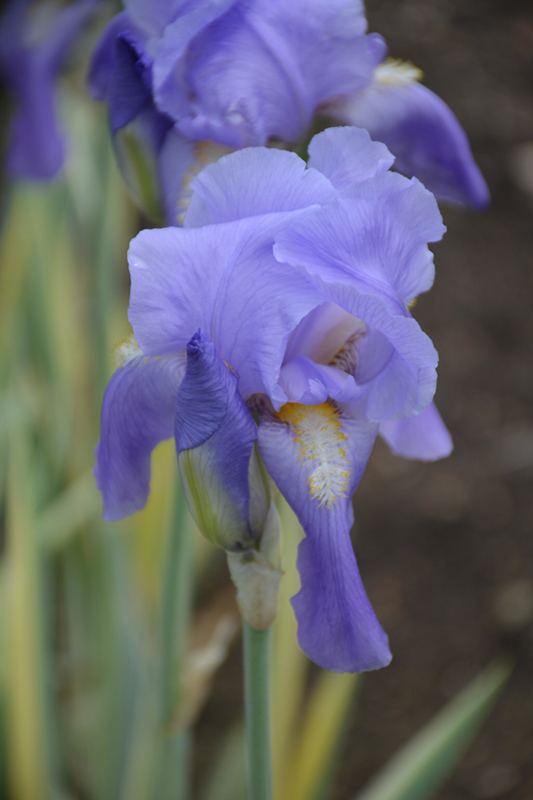Silver-variegated Sweet Iris
Iris pallida 'Argentea Variegata'
Plant Height: 18 inches
Flower Height: 24 inches
Spacing: 14 inches
Sunlight:
![]()
![]()
Hardiness Zone: 3a
Other Names: Zebra Iris, Sweet Flag
Description:
This visually stunning iris features sword-like leaves variegated with silvery-white and gray-green stripes; fragrant lavender-blue blooms in early summer; excellent massed in groupings in the garden; will quickly form dense colonies
Ornamental Features
Silver-variegated Sweet Iris has masses of beautiful lavender flag-like flowers with blue overtones, purple throats and a gold beard at the ends of the stems from late spring to early summer, which are most effective when planted in groupings. The flowers are excellent for cutting. Its attractive sword-like leaves emerge buttery yellow in spring, turning grayish green in color with showy white variegation and tinges of silver throughout the season.
Landscape Attributes
Silver-variegated Sweet Iris is an herbaceous perennial with an upright spreading habit of growth. Its medium texture blends into the garden, but can always be balanced by a couple of finer or coarser plants for an effective composition.
This plant will require occasional maintenance and upkeep, and should be cut back in late fall in preparation for winter. Deer don't particularly care for this plant and will usually leave it alone in favor of tastier treats. Gardeners should be aware of the following characteristic(s) that may warrant special consideration;
- Insects
Silver-variegated Sweet Iris is recommended for the following landscape applications;
- Mass Planting
- General Garden Use
Planting & Growing
Silver-variegated Sweet Iris will grow to be about 18 inches tall at maturity extending to 24 inches tall with the flowers, with a spread of 18 inches. When grown in masses or used as a bedding plant, individual plants should be spaced approximately 14 inches apart. It grows at a medium rate, and under ideal conditions can be expected to live for approximately 10 years. As an herbaceous perennial, this plant will usually die back to the crown each winter, and will regrow from the base each spring. Be careful not to disturb the crown in late winter when it may not be readily seen!
This plant does best in full sun to partial shade. It does best in average to evenly moist conditions, but will not tolerate standing water. It is not particular as to soil type or pH. It is somewhat tolerant of urban pollution. This is a selected variety of a species not originally from North America. It can be propagated by division; however, as a cultivated variety, be aware that it may be subject to certain restrictions or prohibitions on propagation.


